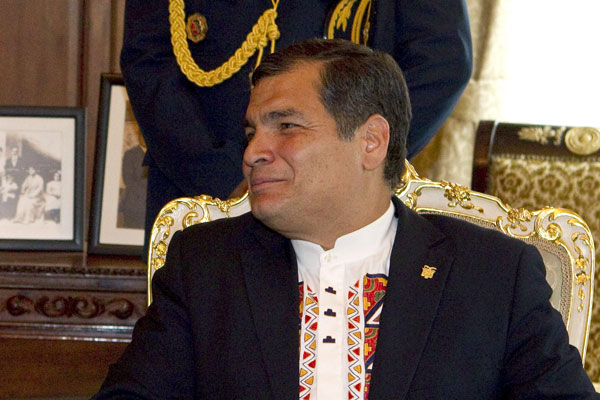
Ecuadoran President Rafael Correa (Photo: EFE)
Earlier this month, Ecuador?s National Assembly passed legislation that would nationalize the country?s private credit reporting industry.
President Rafael Correa has to decide by November 4 whether or not to sign it. The legislation would permit only the government?s central public data agency to provide credit reports and scores.
Private credit bureaus (domestic and foreign) would be nationalized and put out of business as private entities. The new law would also force them to hand over to the government?without compensation?their data about the credit histories of private citizens and companies.
This law directly violates Ecuador?s written commitment under the World Trade Organization?s (WTO) General Agreement on Trade in Services (GATS), in which the country promised never to impose market restrictions or national limits on the provision of credit reference services.
Ecuador?s Association of Private Banks has announced its opposition to the measure, noting that it would give monopoly power over citizens? sensitive, private financial information to the government and potentially transform it into what one Ecuadorian journalist calls ?Big Brother? (Gran Hermano).
As the World Bank?s ?Doing Business? survey and other reports note, public credit registries and private credit bureaus expand access to credit and contribute to economic growth and poverty reduction. It is the poor who lose when restrictions are placed on access to finance (e.g., micro lending and micro borrowing). As Heritage has reported, Ecuador?s government has taken numerous other steps recently that weaken the rule of law.
Despite the worsening market conditions, President Correa has an opportunity to propose changes to the law to keep private credit bureaus in business and send a signal at home and abroad that he sees a future for Ecuador?s market economy. Let?s hope he does.
No comments:
Post a Comment
Note: Only a member of this blog may post a comment.